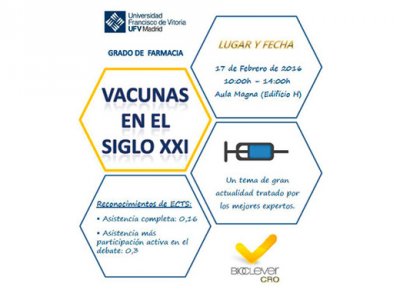New regulations on clinical trials promote growth of European research
18-08-2016In the last meeting held by the Healthcare Foundation 2000, the director of the Spanish Agency of Medicinal Products and Medical Devices (AEMPS), Belén Crespo, confirmed that the new European legislation on clinical trials means a new opportunity to “get back and attract” research not only in Europe, but also in Spain.
According to the representative from the Ministry of Health, this new Regulation on clinical trials with drugs for human use will offer investigators who have moved to places such as the United States and countries in the Far East the opportunity to return to Europe and bring with them the lines of research that will increase European capacity and competitiveness versus the other geographical areas mentioned above.
According to the meeting attendees, the current Spanish legislation involves excessive bureaucracy to conduct a clinical trial, and that is why the new European legislation, as well as the Spanish Royal Decree, which is still being processed, intend to tackle these issues.
In order to be more transparent, the new European regulation has introduced the principles of a single application and assessment coordinated by all Member States of the European Union within strict time frames: implied approval and one decision per Member State.
Carmen González, CEO of the Healthcare Foundation 2000, indicated during her speech that all these new contributions allow to simplify the legislation “while maintaining patients' safety”. Furthermore, it motivates research and collaboration between Member States in conducting trials together, since a more detailed writing enables to conduct clinical trials all over the EU following the same regulations.
New Legislation on Clinical Trials
The new legislation intends to simplify administrative procedures while keeping the same safety guarantees regarding study subjects' rights, well-being and dignity, as well as the reliability and consistency of the data obtained, to make research in European countries more attractive.
The new regulation allows each Member State to dictate its own national legislation on how to reach a single decision on clinical trials and the scope of assessment by their ethics committees, performing this based on the rules set by the new legislation.
On the other hand, Belén Crespo, director of the AEMPS, also indicated that the new legislation will bring positive changes to the way we conduct clinical trials in Spain, “with the introduction of a category called "low-level intervention clinical trial," which will make it easy to conduct non-profit clinical trials that may provide substantial knowledge about already authorized medications”.
According to Crespo, the new policy provides transparency about what trials are being conducted and about the results obtained, since, as she explained in her speech, “it will drive collaboration between sponsors and investigators, contribute to prevent known risks, make it easy to identify areas that need to be researched, and make it easier for patients to participate in clinical trials."
The new regulation allows each Member State to dictate its own national legislation on how to reach a single decision on clinical trials and the scope of assessment by their ethics committees, performing this based on the rules set by the new legislation.
On the other hand, Belén Crespo, director of the AEMPS, also indicated that the new legislation will bring positive changes to the way we conduct clinical trials in Spain, “with the introduction of a category called "low-level intervention clinical trial," which will make it easy to conduct non-profit clinical trials that may provide substantial knowledge about already authorized medications”.
According to Crespo, the new policy provides transparency about what trials are being conducted and about the results obtained, since, as she explained in her speech, “it will drive collaboration between sponsors and investigators, contribute to prevent known risks, make it easy to identify areas that need to be researched, and make it easier for patients to participate in clinical trials."







